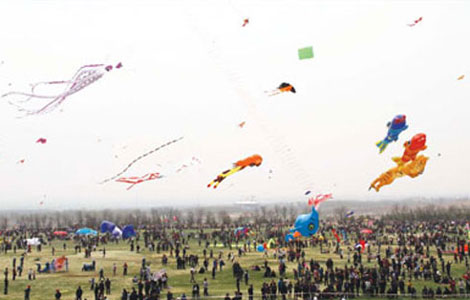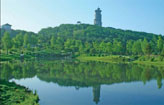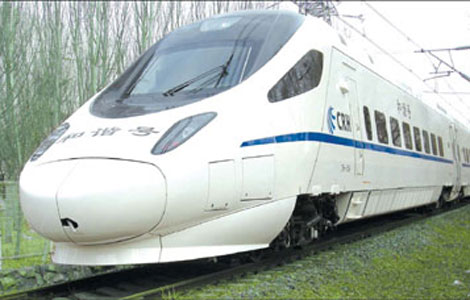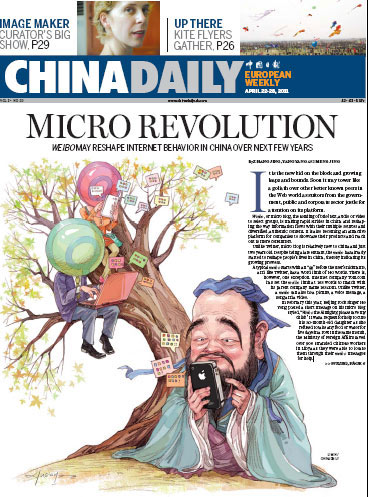Soccer
Soccer in Spain matters more than a sport
Updated: 2011-04-25 14:48
(Xinhua)
MADRID - Football, a primary team sport in Spain by number of practitioners, has become an important phenomenon that involves cultural, social, economic and even political factors. Although it sounds like a cliche, football is much more than two teams of eleven people running after a ball.
The latest surveys about sport habits in Spain shows that 900, 000 supporters, more than two percent of the population, come every week to the stadiums to watch the teams of first and second division of the national competition.
| ||||
The social dimension that football has reached in Spain in little more than a century is remarkable. Football in Spain starts at the edge of the 20th century with the founding of the first clubs with Athletic de Bilbao in 1898, Barcelona in 1899 and Real Madrid in 1902.
The first League Championship in Spain was held in 1929, a date which marks the beginning of a competition that gained importance and viewers steadily throughout the thirties (with the interruption of the war) and the forties.
But the real explosion of football in Spain happened during the fifties, when the rivalry between Real Madrid and FC Barcelona acquired a greater dimension. The authority of General Franco used football as a substitute for politics. The Real Madrid, led by businessman Santiago Bernabeu, was used by the Regime as a symbol of success, looking for a favorable international image.
At the same time, Barcelona FC became "more than just a football club", used by Catalonians as an underground nationalist symbol.
During the nineties, the Real Madrid vs Barcelona rivalry surpassed the Spanish dimension to become a global phenomenon, attracting the attention of millions of viewers around the world. When Real Madrid and Barcelona play, it is more than two teams competing.
Symbolically, two cities also compete for their prevalence in the country. Football is also a confrontation between Madrid and Catalan businessmen who participate in managing their respective teams.
At the same time, Real Madrid and Barca face two management models - the one represented by the Barcelona coach, Pep Guardiola, who has clearly committed the club's youth players. Barcelona FC has scouts all over the World, bringing young players to La Masia, the best football team school in the World. Most Barcelona players have been educated in La Masia and played for Barcelona since they were kids.
Real Madrid, chaired by businessman Florentino Perez, have a different policy. Real recruits the greatest football World stars to strengthen the projection of the club in the global sphere. Nevertheless, it was not always this way. During the nineties, the Real Madrid was leading with a generation of young Spanish players, while Barcelona was buying the biggest football stars.
Football has several ingredients for a strong social appeal. Firstly, it can be played anywhere. Children only need a ball and two stones to play a match. Thus, it is played even in the poorest areas of the world. Secondly, it is not necessary to be very tall, very strong or very fast to be a great player. It is a question of skills, effort and a tactical mind, as many players like Maradona or Raul have proven. Thirdly, most of the football world big stars come from poor families.
So their personal stories are like a modern Cinderella Fairy Tale. This helps people to identify with the players, considered a kind of heroes. Finally, in a football game the result is uncertain most of the time. Small teams usually are able to beat better teams, as the final result is often decided by a small detail. Football history is filled with examples of small poor teams beating the richest teams.
Also we must add the aesthetics of football itself, the dimension in terms of cheap entertainment, and the fact that football teams create and identity for supporters (shirts have become emblems). These factors have make football a mass phenomenom with great impact economically.
The mass media helped Spanish football to become a global marketing machine. Not only sport companies seek to sponsor football teams, all sectors may find it profitable to sponsor a team to identify with their values in teamwork, confidence, credibility, etc in order to increase sales. But what is behind economics of Spanish football to begin with, a business model difficult to be quantified in economic terms. Spanish professional football teams have attracted many of the capital from real estate speculation and economic speculation in general.
Spanish national team has also gained a symbolic space, suffice it to say that nearly 85 percent of Spanish people feel very or fairly proud of the successes of the national team. The last World Cup was a major success for Spain. It was composed by players from all regions of the country, especially Madrid, Barcelona and the Basque Country. All these players shared a very good relationship, helping to build a symbol of Spanish unity.
The institutional structure of football in Spain also proves the relationship between sports and politics. The Sports Council is defined by law as an autonomous administrative body and it is chaired by the Secretary of State for Sport, which is a political appointee named by the government.
Finally, it is necessary to refer to a feature of Spain and its relationship with football, the fact that football has come to be a factor of relaxation to a society that still has not resolved some policy issues resulting from its recent history. So football is in Spain, a space for social debate, a field that channels the regional passions without greatly affecting the political- institutional structure.
E-paper

Blowing in the wind
High-Flyers from around the world recently traveled to home of the kite for a very special event.
Image maker
Changing fortunes
Two motherlands
Specials

Models gear up car sales
Beauty helps steer buyers as market accelerates.

Urban breathing space
City park at heart of Changchun positions itself as top tourism attraction

On a roll
Auto hub Changchun also sets its sight on taking lead in railway sector



